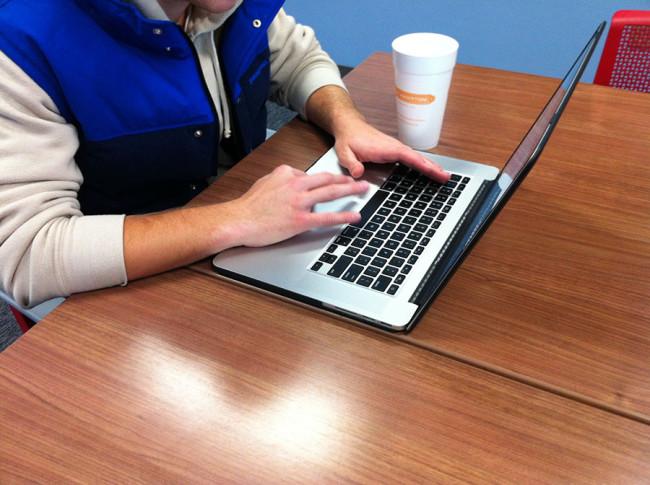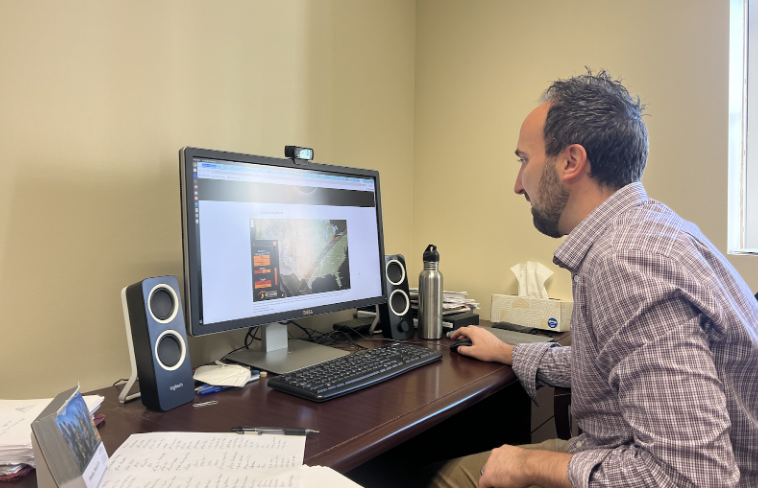
When Tyler Anderson graduates from SMU this spring, he will make a number of decisions. He will choose a place to live and try to find a job. And now, he may choose to take a post-college test.
This spring, the nonprofit Council for Aid to Education will release the Collegiate Learning Assessment.
The CLA + is a post-college assessment that measures critical thinking, problem solving, reasoning and writing. It was designed to quantify skills learned by students. In other words, it was designed to measure the value of one’s degree.
Students will be able to take the test individually or through their institution as soon as this spring. They could then use their test score to market themselves to employers.
The test uses open-ended questions to assess problem solving and writing abilities. Test takers are given performance tasks, in which they must assess a situation and suggest a solution or action. Students have 60 minutes to complete each task.
The test is administered online through a secure connection. It is measured on a 1600-point scale.
More than 200 higher education institutions will use the test starting this academic year, according to The Wall Street Journal. Area colleges that will administer the test include Collin College, University of Texas at Dallas and University of Texas at Arlington.
SMU has not announced whether it will use the test, but students can take the test voluntarily at another testing site. The CAE will release more information in the spring about how students can register to take the test.
SMU Professor Tom Tunks does not consider tests like the CLA+ to be useful because they do not relate back to the institutions’ objectives.
“If you are going to have a good assessment, it has to be based on the objectives that you were intending to accomplish,” Tunks said.
Tunks and others remain skeptical of the test, which costs $35 per student.
The test is part of a trend of higher education assessments as students and institutions try to prove the value of their degrees.
Jose Bowen, dean of Meadows School of the Arts and author of Teaching Naked, has noted this trend.
“I believe higher education can deliver those traditional liberal arts skills. But we don’t actually know at the moment if it works, so we’re going to have to use assessments,” said Bowen, whose book addresses creative teaching methods.
SMU currently uses internal assessments to gauge student progress. For example, in writing classes, students are evaluated based on a departmental rubric following every assignment.
Students are also hesitant to endorse the test.
Anderson, who plans to go into investment banking, will not take the test.
“Trying to actually quantify college in terms of value added is hard to do,” he said. “At different universities you learn very different things in very different ways.”
SMU sophomore mechanical engineering and math major Josh Wills agrees that the test would not be useful to him.
“Although I believe that most SMU students would be well prepared for such an exam, I do not think it would be necessary or beneficial in proving our career readiness,” Wills said.
The test will also be marketed to employers, who want proof that students are ready for the real world.
“What’s basically happening is that companies are losing trust in universities,” Bowen said. “Over time, employers are becoming less happy with what they’re getting.”
Council for Aid to Education, the nonprofit behind the test, designed the assessment because company officials believe the changing job climate demands skills that institutions may not deliver.
These include basic writing and presentation skills, as well as technological tasks.
“The skills required of these students are far greater than those required of students a few decades ago,” the CAE states in an online introduction to the test. “So how do we know whether students are prepared to be successful in a world of increasing complexity?”
Whitney Shelley is vice president for human resources at Denbury Resources Inc., a natural gas company based in Plano, Texas. Shelley says it’s too early to tell the real value of the test. It will take time for the test to earn respect from employers.
“When you look at your most successful hires, does their performance ultimately correlate with the test results? This needs to happen before we can really say that it is a valid tool,” Shelley said.
For Shelley, the test is just another way students can describe their abilities, but it is not the only one.
“It’s really just one more tool for applicants to use to paint the picture of who they are,” Shelley said.
Shelley said her company may consider the test score if put on a resume, but the company has not decided to uniformly request it.
Kim Austin, director of the Cox Career Management Center at SMU, says no employers have requested students use the test yet. But she can see the benefits the test might provide for liberal arts majors.
“I think it can be particularly difficult for students who have a liberal arts background to communicate to a potential employer what they can actually bring to the table,” she said, noting that it is easier for students with more technical degree plans, like finance and engineering majors, to show employers a measure of their knowledge.
For many students, administrators, employers and parents, the CLA+ does not seem to offer all the answers.
“I think it is unrealistic to think that there is a single tool that can be put in place to predict success,” Shelley said.
Cathi Slack, the parent of a junior SMU student, does not see the utility of the test.
“We test kids to death,” said Slack, who has 36 years of public education experience and lives in Bossier City, La. “It’s too much testing.”
While the CLA + has yet to receive universal approval, there is wide support for testing as a general tool for schools and students.
“I actually think we should be doing assessments all the time,” Bowen said. “We should assess all four years.”
Bowen sees assessment as a way to make sure students learn what the professors intend them to take away.
“Did your mental complexity increase? Because that’s the goal of college,” Bowen said.
Tunks agrees. He sees formative assessment as a way to make sure students stay on course.
“In a way, it’s like a sonar in a submarine,” he said.
Students nationwide will begin to take the CLA+ early in spring 2014. They can visit the CAE’s website for more information on the test.












